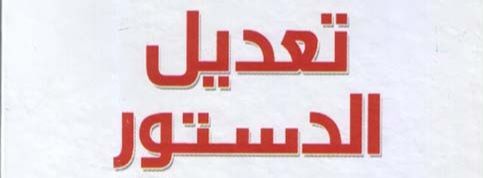The birth of the Palestinian National Authority on the land of Palestine was born from the womb of the Palestinian national struggle led by the Palestine Liberation Organization, and it expresses the sacrifices made to consolidate the inalienable national rights, represented in the right of return, self-determination, and the establishment of the independent Palestinian state—rights for which the Palestinian people have offered thousands of martyrs, wounded, and prisoners from among their best sons.
Based on this national and historical legitimacy, the Palestinian Basic Law was adopted as the constitutional reference regulating Palestinian political and legal life. Article (115) of Chapter Eight stipulates: “The provisions of this Basic Law shall be applied during the transitional phase, which may be extended until the new constitution of the Palestinian State comes into force.”
Accordingly, any attempt to bypass or replace it through presidential decrees and appointed committees constitutes a clear violation of this constitutional rule.
First: Constitutional and Legal Issues
- Violation of Article (115), which affirms the continuity of the Basic Law—the reference—until a new constitution for the Palestinian State is drafted through a consensual national mechanism, not by unilateral decision.
- Disregarding the national sacrifices emphasized in the preamble of the Basic Law, which is an integral part thereof, as the Basic Law is not merely a legal document but the product of the Palestinian people’s struggle and sacrifices.
- Breach of the principle of national participation, since a constitution cannot be drafted except through a comprehensive democratic process expressed through the ballot box and including the participation of civil society institutions, unions, and political forces.
Second: Affirmation of Rights and Freedoms
Chapter Two of the Basic Law (Articles 9–33) enshrines a set of fundamental rights and freedoms that form the cornerstone of any democratic system: equality, personal freedom, the right to a fair trial, prohibition of torture, freedom of opinion and expression, freedom of movement, the right to education and work, the right to union and political organization, and freedom of the press, alongside other social, economic, and humanitarian rights.
These rights are binding and must be respected under the Basic Law, and may not be diminished or unilaterally reformulated in a way that threatens their essence.
Third: National and Political Implications
1- Deepening of political division if a temporary constitution is imposed without consensus and in disregard of the prevailing national and political reality, rendering it theoretical, disconnected from practice, and ultimately unenforceable.
2- Damage to Palestine’s international legitimacy through entrenching unilateral practices that undermine democracy.
3- Undermining the national and historical rights affirmed by the Basic Law and its binding preamble.
Fourth: Recommendations
- Repeal of the presidential decree establishing a committee to draft a temporary constitution.
- Adherence to the valid Palestinian Basic Law as the constitutional reference until a new constitution is drafted through a national and democratic mechanism.
- Opening of an inclusive national dialogue involving civil society institutions, human rights organizations, unions, and grassroots movements to ensure genuine societal participation in any constitutional process.
- Holding general legislative and presidential elections to renew legitimacy and strengthen the democratic system.
- Affirming commitment to international human rights covenants to ensure the respect and protection of the fundamental rights and freedoms of the Palestinian people.
End
Lawyers for Justice
23 August 2025

